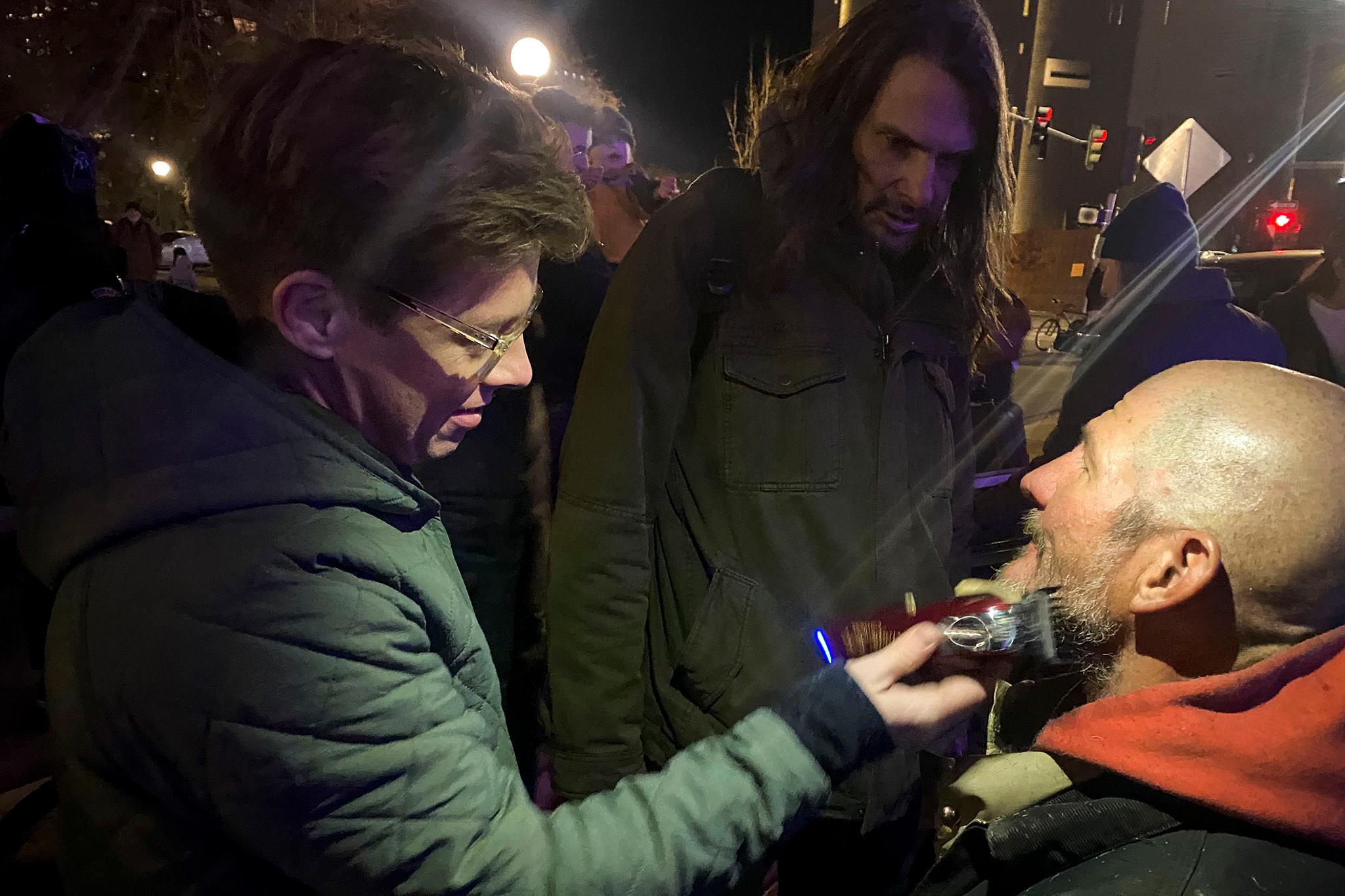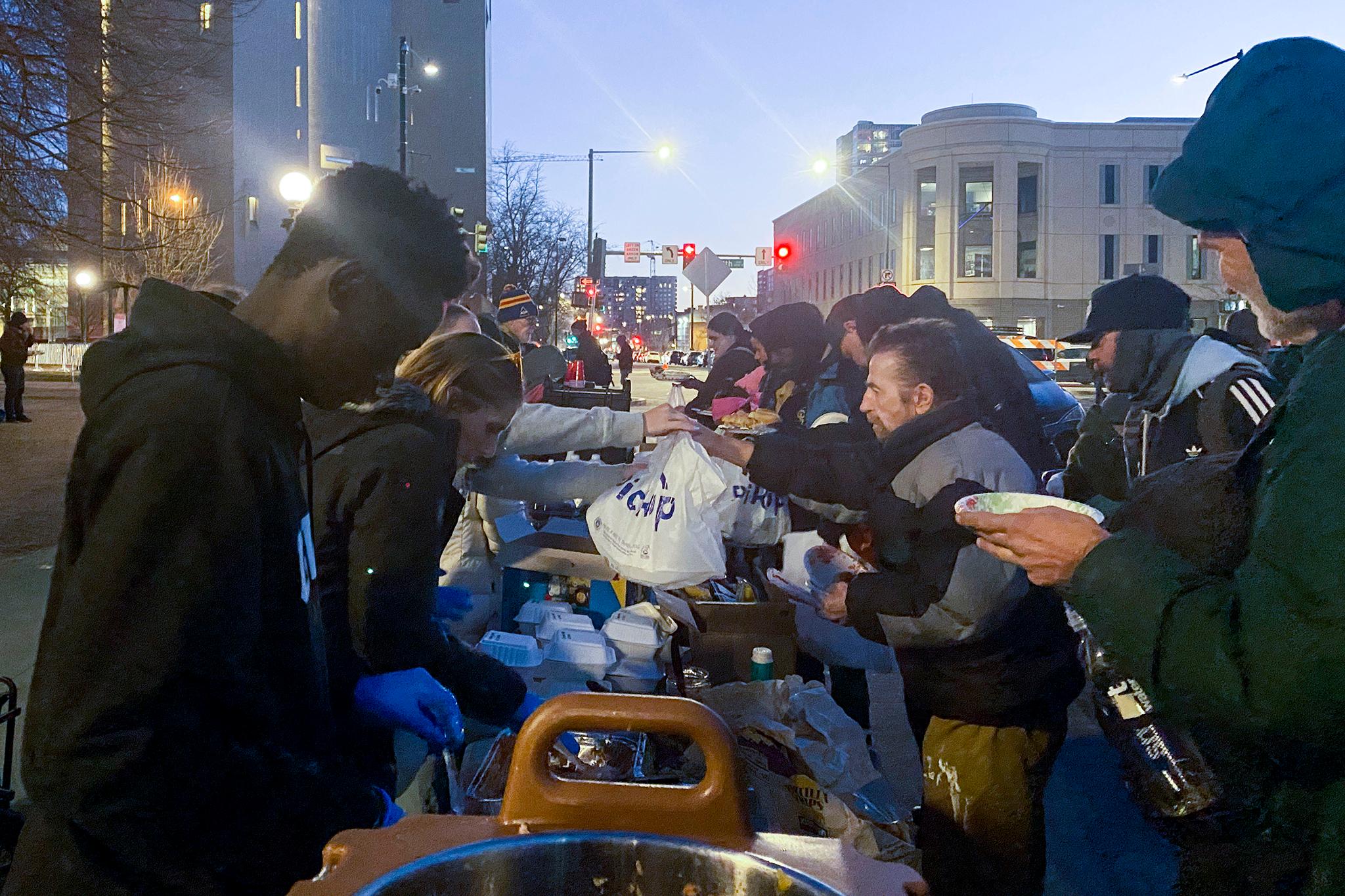After living on the streets since he was 15, Issac Babnick has finally received housing. He also receives disability payments and food stamps, but even with federal assistance, it's not enough to get by. He struggles to afford enough food for the week, and can't always scrape together the money for laundry each month.
So, on Monday nights, he comes to the edge of Civic Center Park by City Hall, where local organizers serve a community meal, give haircuts and distribute clothes, heaters and other resources people need. He connects with friends and shares information about the resources he's been able to access.
"I come out here to grab something to eat, look out for other homeless friends that are still out here, talk to them, network with them," he said. "This right here, it brings a lot of joy to people's lives to come here and then just act quasi-normal for a little bit."
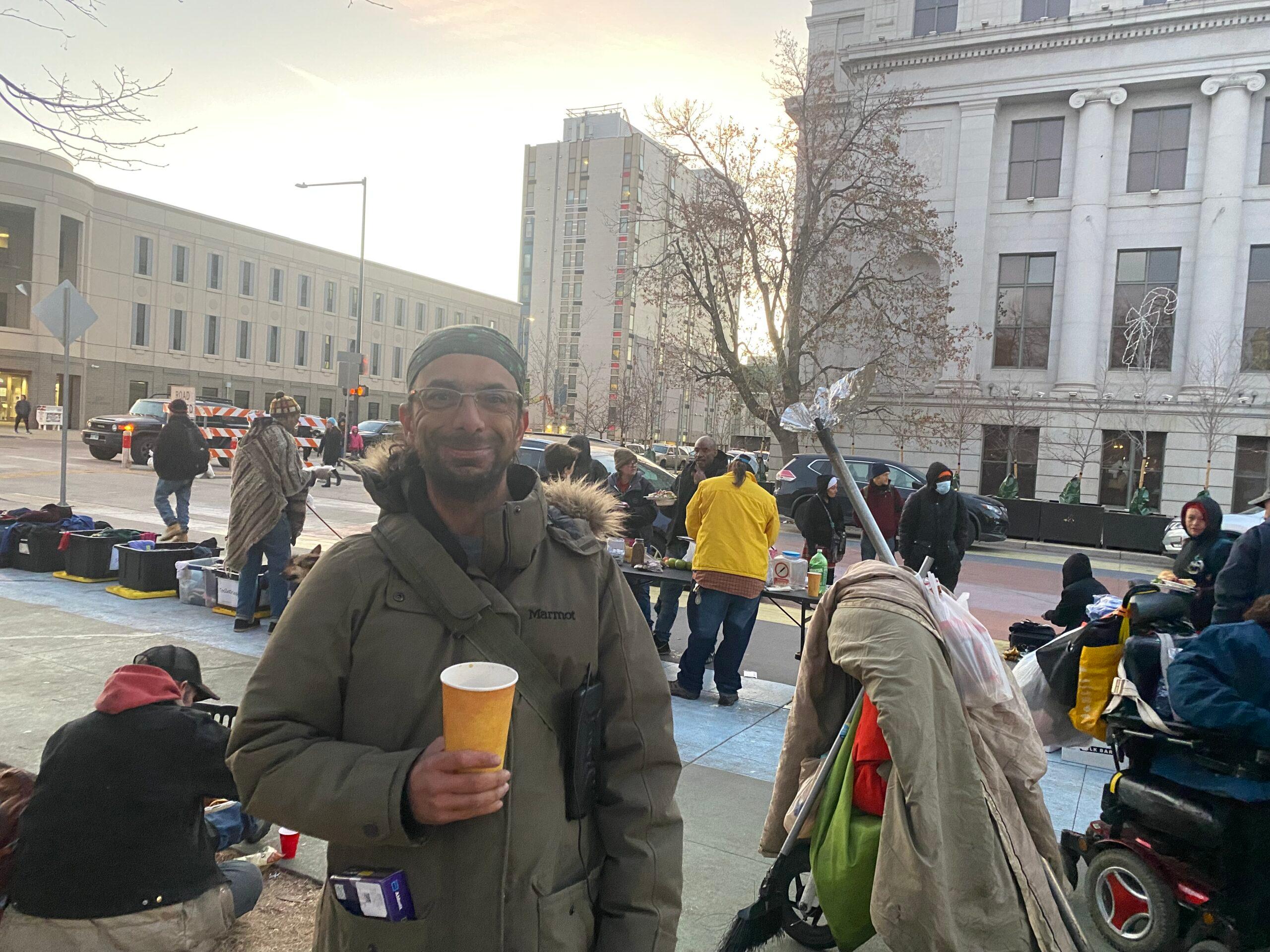
Volunteers have been organizing Mutual Aid Monday every week for around two years now.
Like other mutual aid programs, the project sprung up amid the pandemic and racial justice protests of 2020. But unlike many efforts that petered out over the past few years, Mutual Aid Monday is still going strong; at a time when homelessness continues to rise in Denver.
There are no signups or official titles, just volunteers who cook food, raise money and buy essentials they know people need. Some have struggled to find housing in the past and now want to help others. One Monday night, Kelsang Virya made eight gallons of soup and three turkeys to feed early arrivals before more volunteers came with additional food.
"We started out kind of small, and it just kept growing and growing and growing," Virya said, estimating that around 300 people come for resources each week.
Virya makes the rounds, handing out heaters, food and cigarettes. They don't smoke anymore, it's against their vows as a Buddhist nun, but Virya found it's a good way to connect and check in with people. With dropping temperatures throughout the winter, Virya also spends time during the week with fellow organizers driving around distributing supplies to people in tents.

The volunteers with Mutual Aid Monday focus their efforts on people who cannot access shelters. The number one thing they want is for the city to stop the sweeps.
The meal takes place on Monday nights outside City Hall, the same time as City Council meetings right inside. Organizers from Mutual Aid Monday, along with people experiencing homelessness, often go in during the public comment session to speak out against encampment sweeps, authorized under Denver's urban camping ban. They also want more housing, as well as better access to bathrooms, water and showers for people experiencing homelessness.
"Serving a community meal in this spot is a bit of a protest," organizer Jess Wiederholt said.
Like Virya, Wiederholt knows many people in the unhoused community, and people constantly approach her with requests to look things up on her phone, get supplies or just to check in.
"When the needs are there, and you see the needs, you can't really walk away from that," she said. "I have my kids out here with me tonight. This is what true community is."
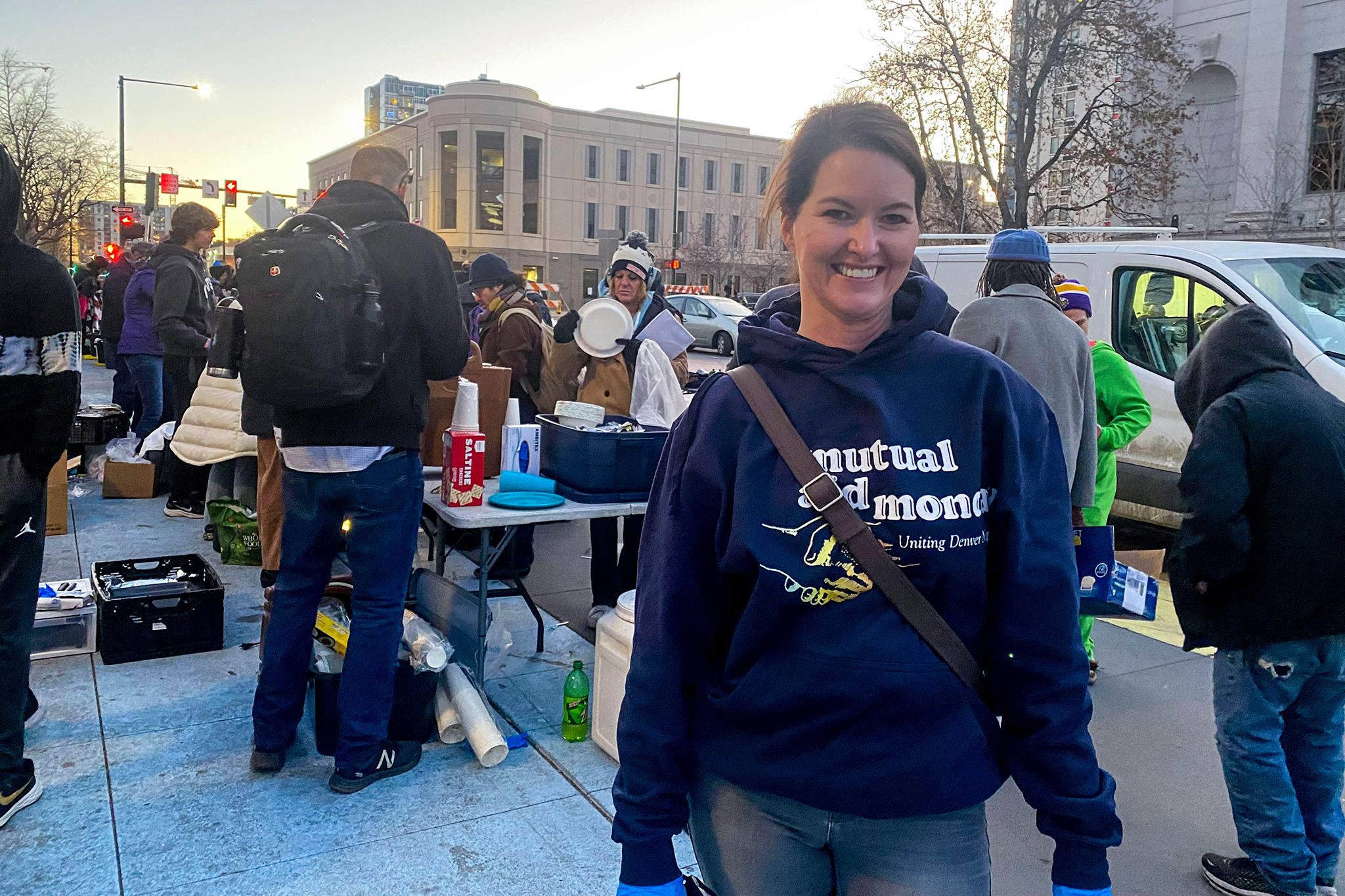
Because people often lose belongings in the sweeps, people experiencing homelessness said Mutual Aid Mondays are vital.
"This is kind of where I get my supplies to survive throughout the week," Sara Puckett said. She doesn't feel safe in the shelters, so she lives in a tent with her boyfriend, Kountry Jones, who served in the military for six years before experiencing homelessness. For them, the sweeps have added an additional stress on top of regular worries about basic needs.
"This isn't a choice," Jones said.
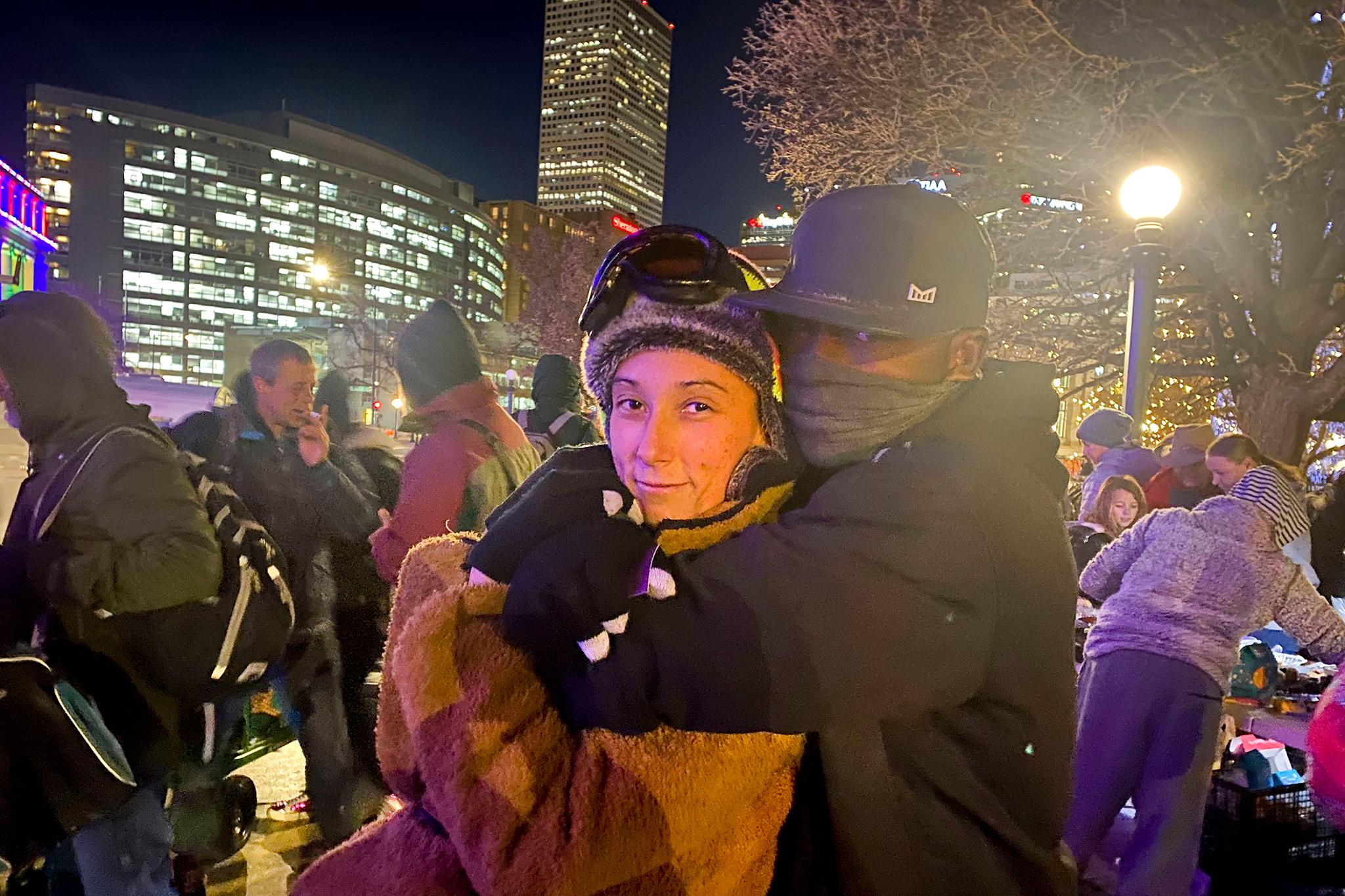
Another Mutual Aid Monday regular, who goes by the name, "Riggs," said he has faced similar misconceptions. He said he's polite to everyone in his neighborhood and participates in community clean up efforts, but feels that people always look down on him.
"A lot of people are very blind to the fact that a lot of them are just one paycheck away, one mishap, you put them right here where I'm at," he said.
Blair Sagan, who was giving Riggs a haircut one Monday night, said that more people need to see those experiencing homelessness as members of their community for things to change.
"I would just challenge folks to get to know their unhoused neighbors," they said. "If you're living in Denver proper, you likely interact with someone unhoused on a pretty daily basis here. You've got to have interaction with folks to have compassion."
